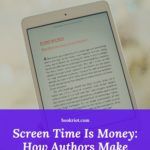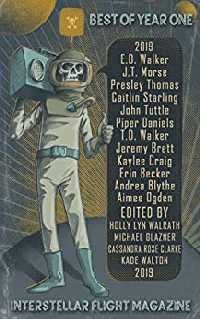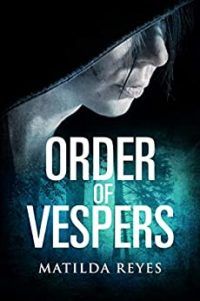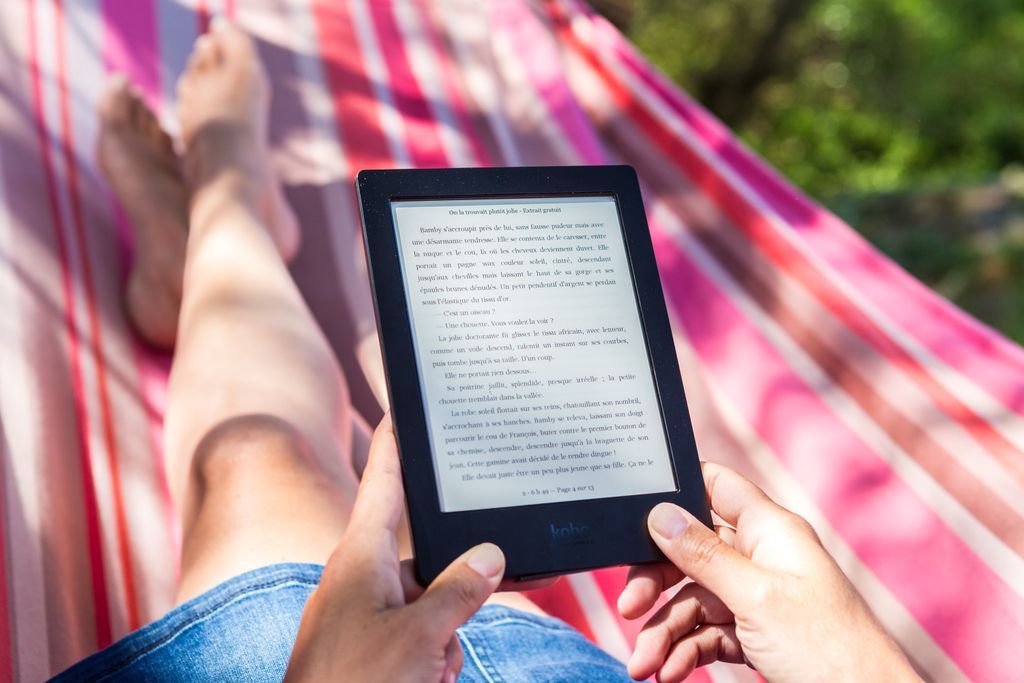Today’s readers have a world of formats at their fingertips, especially when it comes to ebook availability. But how has this digitization affected writers? And do they actually make money from your rapid downloads and promos? Whether you’re an aspiring writer or a curious reader, we’ve done a little bit of legwork to give you a peak behind the curtain on ebooks. We’ve interviewed three writers at different levels of the publishing process, and I’ll also be revealing some of my personal experience in publishing to give you the facts about ebooks (1).
In Any Other Page
Authors and publishers pay almost all the overhead costs upfront, including editing, copy editing, and layout. Even if a publisher or writer has to pay for professional ebook layout services, it can significantly lower the production costs. It also allows for instantaneous purchase, making it a popular option for indie authors and presses. According to Holly Walrath, Managing Editor at Interstellar Flight Press, “[W]e rely heavily on print-on-demand, simply because we don’t have the capacity to warehouse books. But ebooks don’t have any of those limitations. We can create ebooks and make them available much easier to reviewers and readers. From what I’ve seen running a small press, ebooks aren’t necessarily more or less profitable than a print book.”
How To Make An Ebook
Just as in paper publishing, ebooks have to be formatted. Unlike physical books, that formatting is not static, in that a digital version of a book will have to translate to a number of different screens and devices. While formatting an ebook may not require a programming background, it helps to know where the ebook will eventually publish. An author can pay services to format ebooks. If an author signs a publishing contract that includes digital publishing, this will be the responsibility of the publisher. Indie writers and self-published authors often do learn to do it on their own. Walrath at Interstellar Flight notes: “I got my crash-course in creating ebooks with Writespace Writing Center, where I helped create our community anthologies. A friend of mine taught me how to create ebooks in Word and Scrivener. Later, as a freelance editor, I realized that a lot of indie authors were looking for assistance setting up ebooks for KDP and Ingram Spark. So I purchased a really fantastic software called Vellum so I could start helping authors publish their books. That software is one I use today at Interstellar Flight Press to create our gorgeous ebooks.” There are also freeware options to formatting ebooks (Calibre is one), making it a highly accessible form of publishing.
Embracing The Kindle
Through Kindle Unlimited, authors can “rent out” their books and are paid per page read. Because it is a prepaid subscription, authors can get paid so long as the borrower opens the book and reads. Though that per-page payment is admittedly low, it is low-risk for the author and the reader.
Free Ebooks
“I run free ebook promotions at least once a quarter. I do this for a few reasons—for exposure, to gain page reads, and to drive the sales of the other books in my series…Free ebook days are usually followed by a boost in sales,” says Reyes.
The Eternal Struggle: Ebook or Paper Profits
So do writers make money on ebooks? It honestly depends. Similar to traditionally published paper books, there are a lot of factors. For me, I make about 25% out of the gross margin from the profits (2) for both ebooks and print books. Though the print books are sold at a higher value, because the cost of production is also higher, the raw amount I receive is the same. This is considered a generous royalty, but I’m also under an Indie press, where there are traditionally less available markets. Whereas typical royalty percentages are less in a Big 5 publisher (3), the sheer volume of sales means there is potential for an author to earn more. If there is an agent involved, their negotiation can change contract terms. Ultimately, like print books, what determines how much author gets paid from eBooks is the number of copies sold. Or borrowed, as in the case of Kindle Unlimited. Even then there are a number of factors both predictable and unpredictable including marketing, audience, trends, the creator’s platform, etc. There is a lot of chance and a lot of luck when it comes to what a writer earns. What makes ebooks a draw for publishers and writers is the same thing that attracts some readers: speed and accessibility. As Netto puts it, “I love the fact that readers don’t have to leave their homes to start a new book. If they’re excited about the story, they can download it and begin their adventure.”







































